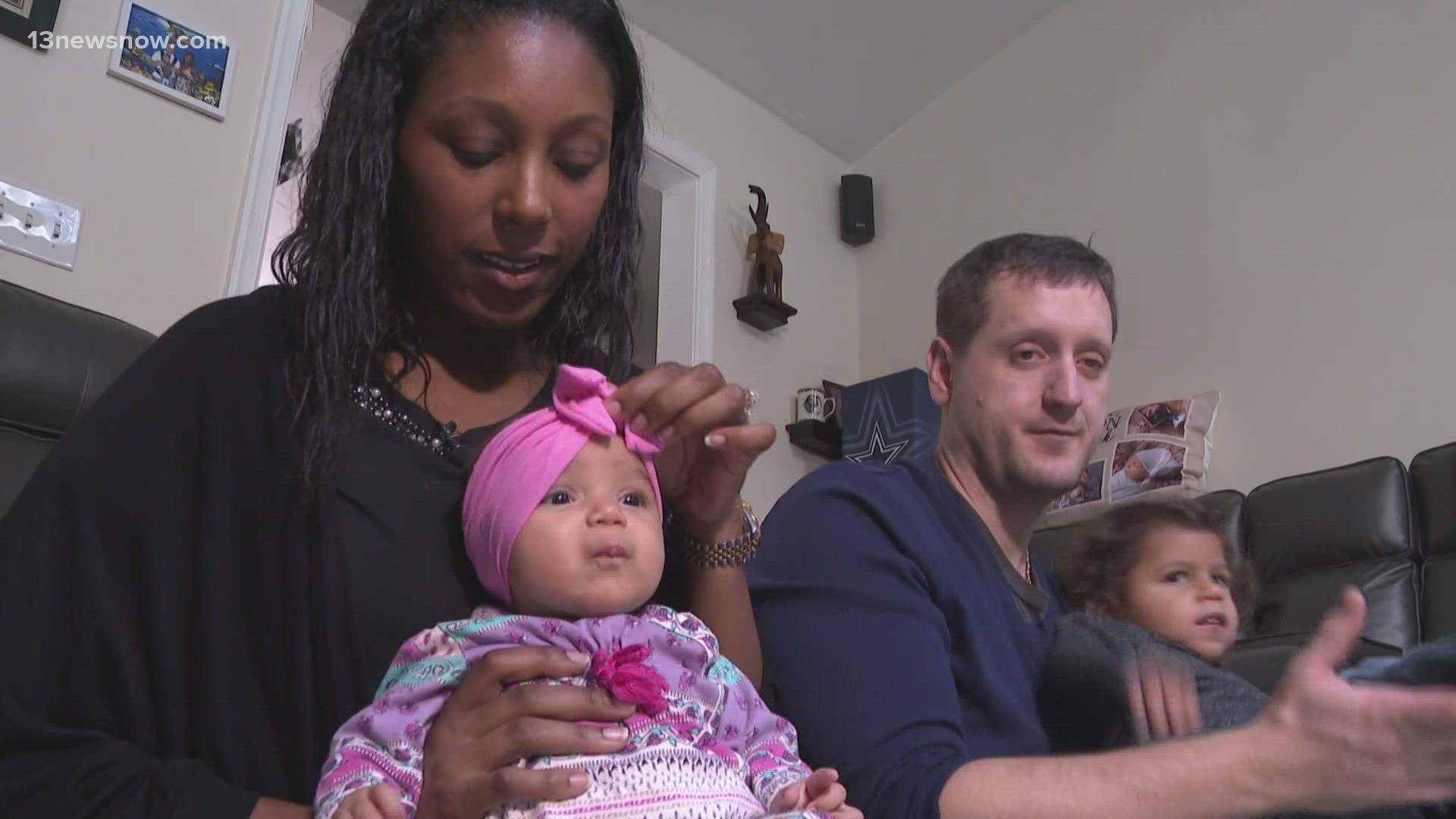NORFOLK, Va. — For Meghan and Antonio Hopkins, it took about a month to juggle a routine with their young children, 3-year-old Lincoln and 3-month-old August.
These days, August gets 6-8 diaper changes and feedings, and about 20 minutes of tummy time. Meghan said daily baths aren't yet necessary.
"Now that there's more germs being introduced, then we definitely do the bath about three days a week and then wipe her down at least the rest of the time," said Hopkins.
But not all new parents are sure about what's best at bath time. And it could prove problematic for their bundles of joy.
University of Virginia Pediatrics Professor Dr. Ann Kellams joined other researchers at UVA Children's Hospital to conduct a study on newborn skincare at maternity hospitals across the United States. The study, published in September by the American Academy of Pediatrics, shows there are no evidence-based guidelines for bathing newborns.
"What we know about newborn skin is that it is very thin," said Kellams. "And so, anything that we can do to preserve the integrity of the skin is important."
Kellams said the idea for the study came from a fellow researcher's personal experience in a maternity ward.
"One of my colleagues -- the primary author of this paper -- had a baby in the hospital and I was the attending doctor," Kellams explained. "And she said, 'Oh my gosh, what are we doing? Why are we using these soaps? Why do you want to do this to my baby?'... And then I said, 'Gosh, I bet you anything that most of the hospitals across the country are doing the same thing because that's the way we've always done it.' And we decided to look into it."
The study included a 16-question survey of bathing practices and advice for parents at 109 hospitals nationwide. The results echoed the lack of standards for newborn skincare, revealing a wide variety of approaches across maternity wards:
- 87% of hospitals surveyed delayed first newborn baths by at least 6 hours
- 10% of hospitals, more often at nonacademic centers and on the West Coast, discharged newborns without a bath
- Healthcare providers were inconsistent -- and possibly contradictory -- on educating parents about tub immersion
- There was little science reported by hospitals that went into forming their policies
Kellams said researchers also found conflicting parental guidance and soap use, and some bath products used in hospitals could be harmful to a baby's sensitive skin.
"The detergents in soaps, including baby soaps, removes some of those natural oils and some of that natural protection," said Kellams.
Addressing the variations in hospital policies and parental guidance is crucial, Kellams said, because the skincare babies receive shortly after birth can have long-term effects on their health.
"Does it make you more prone to allergies? Does it make you more prone to eczema? Those types of issues that can be really debilitating in early infancy and childhood," said Dr. Kellams.
Researchers urge the need for more consistent practices, based on science, from hospital to home.
"One of the bottom lines of this publication is we're doing things differently all over the place," Kellams said, "and we need to figure out what is best and develop some skincare guidelines."
Until more research is done, Kellams advises new parents to proceed cautiously at bath time.
She recommends occasional sponge baths when needed, and ditching the use of harsh soaps and products to provide the best protection for a newborn's skin and immune system.
Author's Note: The video below is on file from Feb. 15, 2021.

